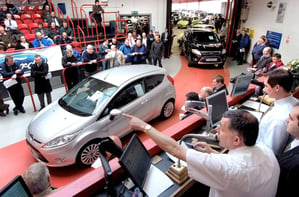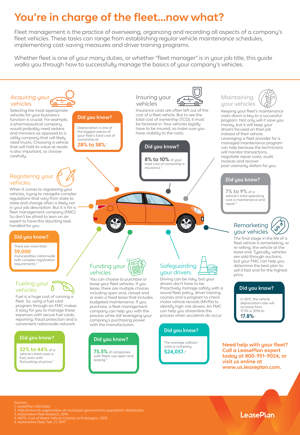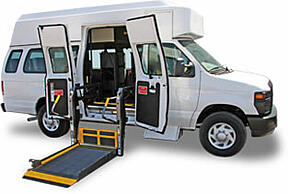 When calculating the life-cycle cost of a vehicle, deprecation is the single biggest factor to keeping the cost low. Depreciation should be on a fleet manager’s mind or on the mind of anyone who regularly buys new cars. According to Phillip Reed, senior consumer editor at Edmunds.com, a vehicle can lose 30 percent of its’ value in the first year and as much of 50 percent in the first three years.Given these numbers, it is important to look at what factors can affect resale value and ultimately vehicle depreciation.
When calculating the life-cycle cost of a vehicle, deprecation is the single biggest factor to keeping the cost low. Depreciation should be on a fleet manager’s mind or on the mind of anyone who regularly buys new cars. According to Phillip Reed, senior consumer editor at Edmunds.com, a vehicle can lose 30 percent of its’ value in the first year and as much of 50 percent in the first three years.Given these numbers, it is important to look at what factors can affect resale value and ultimately vehicle depreciation.
Read More




 If you're considering outsourcing the management of your vehicle fleet to a professional firm like Caritas Vehicle Services, it is important to consider the potential economic benefits of making such a decision. And, who would be more qualified to elaborate on these benefits than one of our respected clients? These are individuals who who have a clear understanding of their Community's financial position both before and after they partnered with Caritas.
If you're considering outsourcing the management of your vehicle fleet to a professional firm like Caritas Vehicle Services, it is important to consider the potential economic benefits of making such a decision. And, who would be more qualified to elaborate on these benefits than one of our respected clients? These are individuals who who have a clear understanding of their Community's financial position both before and after they partnered with Caritas. "My minivan sold for how much?" My client asked, flashing a look of delight, surprise and slight disbelief. We politely reassured her that, yes, her para-transit minivan was sold at the previous week's
"My minivan sold for how much?" My client asked, flashing a look of delight, surprise and slight disbelief. We politely reassured her that, yes, her para-transit minivan was sold at the previous week's .jpg?width=188&name=Chris%20(2).jpg) Every ship needs a captain. Ideally, the one chosen to be captain is the individual with the most experience and know-how. For example, at the helm of Caritas Vehicle Services is our fearless leader, Mr. Chris Hoar. As President & Owner of our organization, he has carved out a niche where we succeed and, more importantly, strives to interweave his Catholic faith with some of our business practices. In this Q&A, you will learn about Mr. Hoar's background and how he has succeeded in steering a small, Midwestern-based enterprise through the swells of keeping up with competition & the times.
Every ship needs a captain. Ideally, the one chosen to be captain is the individual with the most experience and know-how. For example, at the helm of Caritas Vehicle Services is our fearless leader, Mr. Chris Hoar. As President & Owner of our organization, he has carved out a niche where we succeed and, more importantly, strives to interweave his Catholic faith with some of our business practices. In this Q&A, you will learn about Mr. Hoar's background and how he has succeeded in steering a small, Midwestern-based enterprise through the swells of keeping up with competition & the times.  Whether your community has 30, 100 or 500 vehicles, how in the world do you track all the dollars spent to keep each vehicle properly maintained over its lifetime? When a driver takes their vehicle to a shop and is presented with a $1,000 estimate that includes a long list of items, how can the driver possibly know for certain if everything on the list is really necessary? Or, how can you find out which vehicles in your fleet cost the least to maintain and which ones cost the most?
Whether your community has 30, 100 or 500 vehicles, how in the world do you track all the dollars spent to keep each vehicle properly maintained over its lifetime? When a driver takes their vehicle to a shop and is presented with a $1,000 estimate that includes a long list of items, how can the driver possibly know for certain if everything on the list is really necessary? Or, how can you find out which vehicles in your fleet cost the least to maintain and which ones cost the most? The process of acquiring new vehicles can sometimes make you feel like the victim of high-way robbery (pun intended). Luckily, there are manufacturers who actually strive to help cut costs in many ways, especially if you operate a fleet. Many car companies offer volume incentives and VIP programs, which greatly reduce not only the acquisition cost but also the
The process of acquiring new vehicles can sometimes make you feel like the victim of high-way robbery (pun intended). Luckily, there are manufacturers who actually strive to help cut costs in many ways, especially if you operate a fleet. Many car companies offer volume incentives and VIP programs, which greatly reduce not only the acquisition cost but also the 